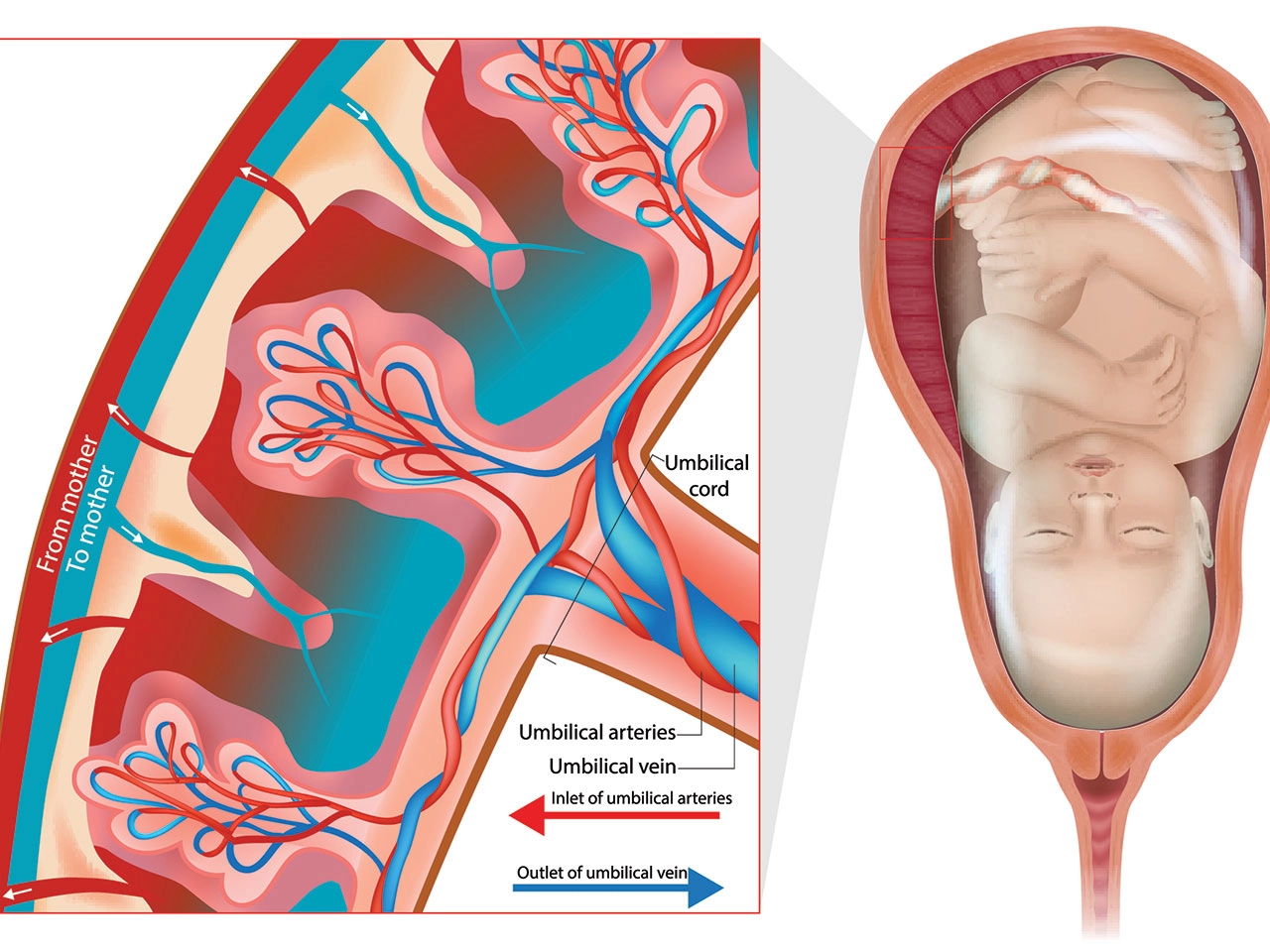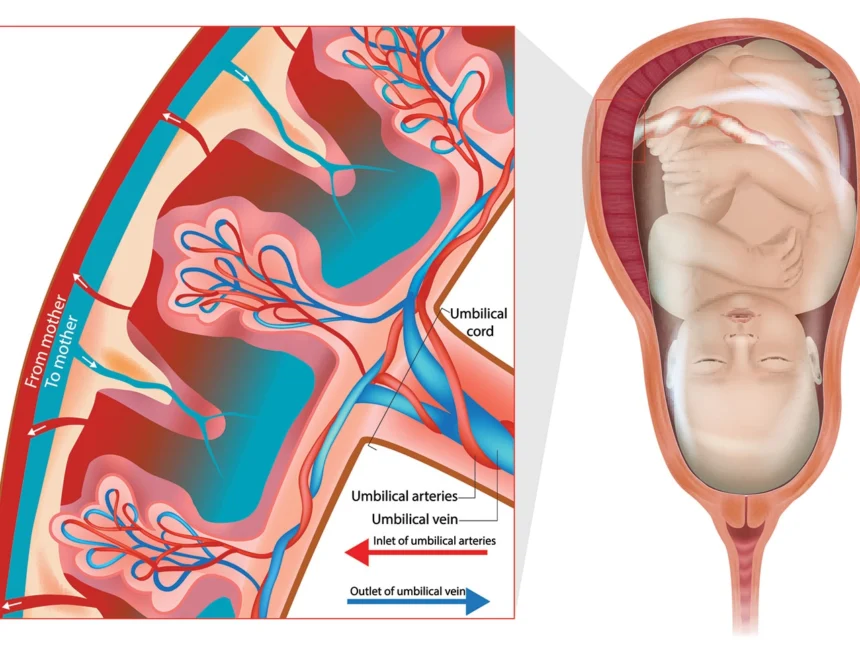When a woman becomes pregnant, a new organ known as the placenta begins to form inside of her uterus. On occasion, it does not expand as it should, or it has an injury that prevents it from doing so. Placental insufficiency may develop as a consequence of this issue in the patient’s health. Placental dysfunction or uteroplacental vascular insufficiency are two more names that are often used to refer to this disorder. It is a serious pregnancy problem, but fortunately, it is not very frequent.
When the placenta is not functioning properly, it is unable to transfer appropriate amounts of oxygen and nutrients from the mother’s circulation to the developing baby. If it does not get this vital assistance, the baby will not be able to develop and flourish. This may result in the baby being born too soon, with low birth weight, and perhaps even birth abnormalities. It can also increase the likelihood of difficulties for the mother throughout pregnancy. It is essential to the health of the mother and the infant that this condition be identified and treated as soon as possible.
This blog provides an in-depth analysis of placental dysfunction, including its root causes and potential solutions.
What exactly is Placental Insufficiency?
Placental insufficiency is a condition that may arise if the placenta does not grow normally or if it sustains an injury. It is possible for there to be a reduction in the amount of blood that flows between the mother’s circulatory system and the placenta if the placenta is harmed. Because of this, the infant will get an inadequate amount of the necessary nutrients. It might result in a growth that is not fully formed, the exhibition of indications of foetal distress, and labour that is challenging. This issue is also possible in the event that the woman’s blood supply does not significantly rise by the middle of the pregnancy.
If there is a problem with the placenta, it will be unable to transfer enough oxygen and nutrients from the mother’s circulation to the developing baby. If it does not get this essential assistance, the infant will not be able to grow and develop normally. It may cause the baby to be born too soon, with low birth weight, as well as congenital problems. Additionally, it raises the possibility of difficulties for females. It is imperative for the well-being of both the mother and the unborn child that medical professionals make an early diagnosis of this issue.
Symptoms of Placental Insufficiency
Placental insufficiency is not related to any symptoms that may be experienced by the mother. On the other hand, there are indicators that may lead to an early diagnosis. It is possible for the mother to see a reduction in the size of her uterus in comparison to her prior pregnancies. There is a possibility that the foetus is moving less often than was anticipated.
If the baby isn’t developing as it should be, the mother’s abdomen will be relatively tiny, and she won’t feel the baby’s movements very often.
Abruption of the placenta may be accompanied by bleeding from the vagina or contractions of premature labour.
Causes of Placental Insufficiency
The following is a list of the many potential causes of placenta insufficiency:
- Diabetes
- Anemia
- Smoking
- Certain pharmaceuticals (especially blood thinners)
- Drug abuse (particularly cocaine, heroin, and amphetamines)
- Unhealthy levels of blood pressure
Insufficiency of the placenta may also arise if there are particular developmental abnormalities with the placenta at the time of pregnancy. These problems include but are not limited to the following:

- Bleeding
- A little piece of placenta
- An irregular form was seen in the placenta.
What kind of treatment is there for placental insufficiency?
When a woman has been pregnant for less than six months, and the doctor or obstetrician determines from the exams that the baby is not in danger, they may choose to delay the birth of the baby. It is possible for women to be subjected to regular testing in order to guarantee that the baby will continue to have a healthy and upward growth graph.
When the pregnancy has reached the thirty-seventh week or when the baby’s health is in jeopardy, the doctor has the ability to bring on labour by inducing labour. If medical professionals are unable to start labour with the assistance of medicines, the woman may be forced to undergo a cesarean section in order to give birth (C-section).
At this time, medical professionals are unable to provide an effective treatment for placental insufficiency. The treatment of other illnesses, such as diabetes or high blood pressure, may, on the other hand, be beneficial to the development of the kid. After the diagnosis of placental insufficiency has been made, the doctor would likely check for indications of hypertension.
It’s possible that your doctor may prescribe you low-dose aspirin and certain vitamin supplements. These may be of assistance in the process of the placenta affixing itself to the uterus. Inducing labour might be the greatest treatment option for you if your pregnancy has progressed to the point where it can be carried to term.
Complications
For Mother
In most cases, a diagnosis of placental insufficiency is not considered to be a life-threatening condition for the mother. On the other hand, the risk is significantly increased if the mother has diabetes or hypertension. It is more probable that the mother will experience the following when she is pregnant:
- preeclampsia (elevated blood pressure and end-organ dysfunction)
- preterm labour and delivery
- rapid weight gain
- leg and hand swelling
For Baby
When placental insufficiency develops in a pregnant woman early on in the pregnancy, it might cause more serious complications for the developing baby. Among the potential dangers to the newborn are:
- increased likelihood of the baby being born without enough oxygen supply (can cause cerebral palsy and other complications)
- learning disabilities
- the low temperature throughout the body (hypothermia)
- low blood sugar (hypoglycemia)
- too little blood calcium (hypocalcemia)
- red blood cells in excessive amounts (polycythemia)
- labour that begins too early, cesarean delivery, stillbirth, and death
Conclusion
In order to effectively treat placental insufficiency, early identification is very necessary. Women should abstain from substance abuse, smoking, and drinking alcohol whenever possible. They are responsible for ensuring that they get all of the necessary prenatal care.








